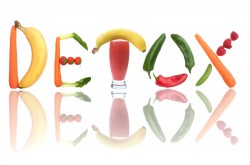Having a garden is a great way to ensure you are eating healthy, beneficial, and clean produce. In honor or National Nutrition Month, we are going to focus on the nutritional perks of common garden items so you will A) learn the health benefits of the items you’re growing or B) learn of healthy items to add to your garden. Even if you don’t currently have a garden at your home, there is nothing wrong with learning more about why certain foods are good for you.
Common Veggies and their benefits:
– Broccoli—rich source of a variety of biochemicals that are known to fight cancer; it has high amounts of potassium, which help you maintain a healthy nervous system and promote regular muscle growth; contains magnesium and high amounts of calcium, which help regulate blood pressure; contains high levels of vitamin K, which is great for bone health and prevention of osteoporosis. Broccoli is also helpful in repairing skin damage, aiding in digestion, fighting against heart disease, and strengthening the immune system.
– Spinach—Spinach is high in dietary fiber, which helps with digestion, constipation, maintaining low blood sugar, and with overeating; contains vitamins A and C, folic acid, and magnesium, which help control different cancers, (colon, lung and breast) lower blood levels of homocysteine, (protein that damages arteries) and helps protect against heart disease; it also contains lutein, which is one of the best foods in prevent cataracts. Lutein also helps against preventable blindness and cancer.
– Tomatoes—Tomatoes have high levels of lycopene, which is an essential anti-oxidant that helps fight against cancerous cell formation; also help prevent against heart disease, high cholesterol, macular degeneration, and night blindness. If eaten regularly, they can actually improve the texture and color of your skin and the vitamin A in tomatoes helps in improving vision
– Carrots—benefits include reduced cholesterol, prevention of heart attacks, certain cancers, strokes, diabetes and macular degeneration due mainly to its beta carotene and fiber content. It is also a great source of vitamin A, which helps improve eyesight
– Bell Peppers—regardless of the color, all bell peppers contain a good dose of fiber, which helps lower cholesterol and helps prevent colon cancer. They also contain vitamin B6 and folic acid, which reduce homocysteine levels and are abundant in vitamins A and C, which boost immunity and fight against heart disease, diabetes, emphysema, and arthritis. Red peppers specifically contain lycopene (helps lower risk of certain cancers) and beta carotene. (helps with night vision)
Common Fruits and their benefits:
– Apples—“An apple a day keeps the doctor away.” Boron found in apples, helps to strengthen bones; pectin in apples helps to lower your bad cholesterol; apples are said to help in the prevention of certain cancers, (breast, colon, liver) diabetes, and Alzheimer’s disease
– Oranges—Oranges are high in fiber, vitamin C, flavonoids and phytonutrients, which reduce the risk of heart disease and regulate high blood pressure. They are also rich in iron, vitamin B6, and calcium, which help oxygen levels, prevention of lung cancer, and a healthy structure of bone and teeth. There are many benefits of eating oranges, we just named a few
– Strawberries—full of antioxidants and fibers that can help reduce your risk of cancer, heart disease, inflammatory diseases, and birth defects. They also contain very high levels of vitamin C, which helps to lower your blood pressure, ensure a healthy immune system, and fight against cardiovascular diseases.
If you don’t feel like you are eating as healthy as you could be, having a garden is a cheap, easy way to incorporate these nutrient filled fruits and veggies into your regular eating patterns. No matter what kind of vegatable, fruit or herb you decide to grow in your garden, you are bound to get something beneficial out of it besides the fresh flavor!
Tell us: what do you grow in your garden? Or what would you like to grow if you did have a garden?




Comments (0)